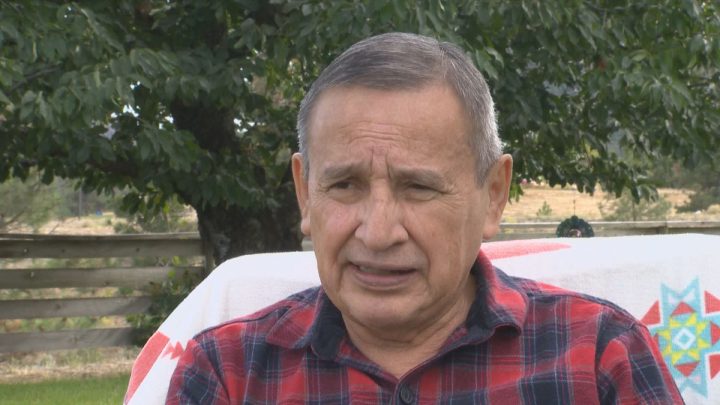The First Nations Leadership Council (FNLC) is calling upon both the provincial and federal government for aid as flooding in B.C. adds to already existing challenges faced by Indigenous communities.

“The First Nations Leadership Council (FNLC) remains deeply alarmed and concerned about both short-term and long-term cumulative effects of the crisis upon the safety and welfare of First Nation communities,” wrote FNLC staff, in a release.
The council says they need more financial support as their communities are experiencing a myriad of issues, compounding on top of one another.
“First Nations (are) still recovering from the ongoing emergencies of the 2021 wildfires, the COVID-19 pandemic, the opioid crisis, the homelessness crisis and the crisis caused by the discovery of the thousands of unmarked graves on the sites of former residential schools,” FNLC staff said.
Grand Chief Stewart Phillip, president of the Union of BC Indian Chiefs, says the level of support First Nations have received so far is unacceptable.

Get breaking National news
“From a pandemic, to fires then to floods, First Nations have been forced to shoulder the impacts of colonial-induced climate extremes while navigating the challenges caused by COVID-19 without adequate support and resources,” said Grand Chief Stewart Phillip.
“Over the past week, many First Nations have lost their homes, with little to no support from B.C. and Canada, while being forced to pay out of pocket to access temporary shelter and food supplies.
“This is totally unacceptable.”
“Time and time again First Nations have borne the brunt of climate change impacts and time and time again the federal and provincial governments have failed to assess and take seriously the risks posed by climate change.”
“B.C. and Canada must commit to the full reimbursement of all costs that have accumulated for all impacted First Nations, including accommodations and transportation costs, rather than continuing to generously fund a military-style invasion of peaceful land defenders in unceded Wet’suwet’en territory, as a means to advance LNG fossil fuel development. Our hearts go out all the flooding and mudslide survivors, and to the 17,000 people that have been displaced from their homes.”
The council says the B.C. government has been taking a ‘reactionary and inadequate’ approach to climate disasters in the province.
- Queen’s University students stranded in Doha after Iran attack shuts down airspace
- Attack on Iran triggers global flight disruptions, impacts Canadian travellers
- WWE Hall of Fame ring belonging to wrestling legend recovered after stolen
- Carney calls for protection of civilians as U.S., Israel strike Iran
“The time for proactive responses is now,” said Regional Chief Terry Teegee of the BC Assembly of First Nations, noting the varying impacts that require immediate attention.
“The Fraser River is an essential waterway in the global food chain. The rippling effects of this disruption could be catastrophic for our communities if not adequately addressed and First Nations need to be included in these conversations at the forefront, yet they haven’t been thus far.”
The First Nations Leadership Council is composed of the political executives of the BC Assembly of First Nations (BCAFN), First Nations Summit (FNS), and the Union of BC Indian Chiefs (UBCIC).










Comments
Comments closed.
Due to the sensitive and/or legal subject matter of some of the content on globalnews.ca, we reserve the ability to disable comments from time to time.
Please see our Commenting Policy for more.